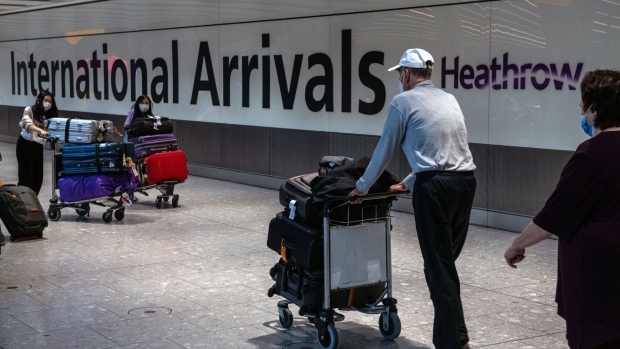Jun 20, 2022
Airline Industry Sees Return to Profit in 2023, Defying Slowdown
, Bloomberg News

(Bloomberg) -- The airline industry will return to profit next year as pent-up demand for travel sustains bookings even as the global economy tightens, the International Air Transport Association trade group predicted.
Losses this year are likely to total $9.7 billion as air travel begins its recovery from the coronavirus crisis, IATA said Monday in an update at its annual meeting in Doha, an improvement on the $11.6 billion deficit predicted at the previous gathering last October.
“Industry-wide profit should be on the horizon in 2023,” IATA Director General Willie Walsh told the gathering of airline chiefs. “We are rebounding. By next year, most markets should see traffic reach or exceed pre-pandemic levels.”
While most carriers worldwide are enjoying bumper sales as customers flood back following the lifting of Covid curbs, taking leisure trips and catching up with friends and family, there are doubts about how long the surge will continue as high fuel prices push airlines to hike fares and inflationary pressures weigh on household spending.
Walsh said that while “there is no way to sugar coat the bitter economic and political realities,” at the same time “the desire to travel and the necessity of moving goods are both solid.”
IATA also said that 2021’s loss amounted to $42 billion, better than the $52 billion shortfall previously envisioned.
‘Leaner, Tougher’
The industry has emerged “leaner, tougher, and nimble,” having defied predictions for widespread bankruptcies and failures, Walsh said. The situation was helped by the industry having enjoyed its best-ever run of profits prior to the pandemic, though fixing balance sheets carrying debts of $650 billion remains a “monumental challenge,” he said.
Walsh, previously chief executive officer at British Airways parent IAG SA, told Bloomberg Television on Sunday that previous experience suggests the impact of an economic slowdown won’t be so great, pointing to the global financial collapse of 2008, after which passenger numbers held steady in 2009 and showed strong growth in 2010.
He also said he doesn’t expect staffing shortages that have disrupted flights to be a major issue as travel peaks in coming months, with carriers taking steps to rein in capacity where necessary. Passengers “can book with confidence,” he said, knowing that problems are “isolated and it will be addressed.”
Fare Impact
Customers can expect to see higher fares as a consequence of surging fuel prices, especially outside the US, where a lack of hedging led to an immediate hike, Walsh cautioned, while suggesting that the impact may be “marginal” with no massive hit to demand. On the positive side, higher jet fuel prices could encourage the switch to sustainable aviation fuel, with the price differential between the two now much narrower, he said.
Walsh said in the interview that he sees the war in Ukraine remaining a long-term challenge for airlines, though the impact on most carriers has been “pretty limited,” apart from a handful such as Finnair Oyj, whose eastbound network has been largely wiped out by the conflict.
©2022 Bloomberg L.P.







